
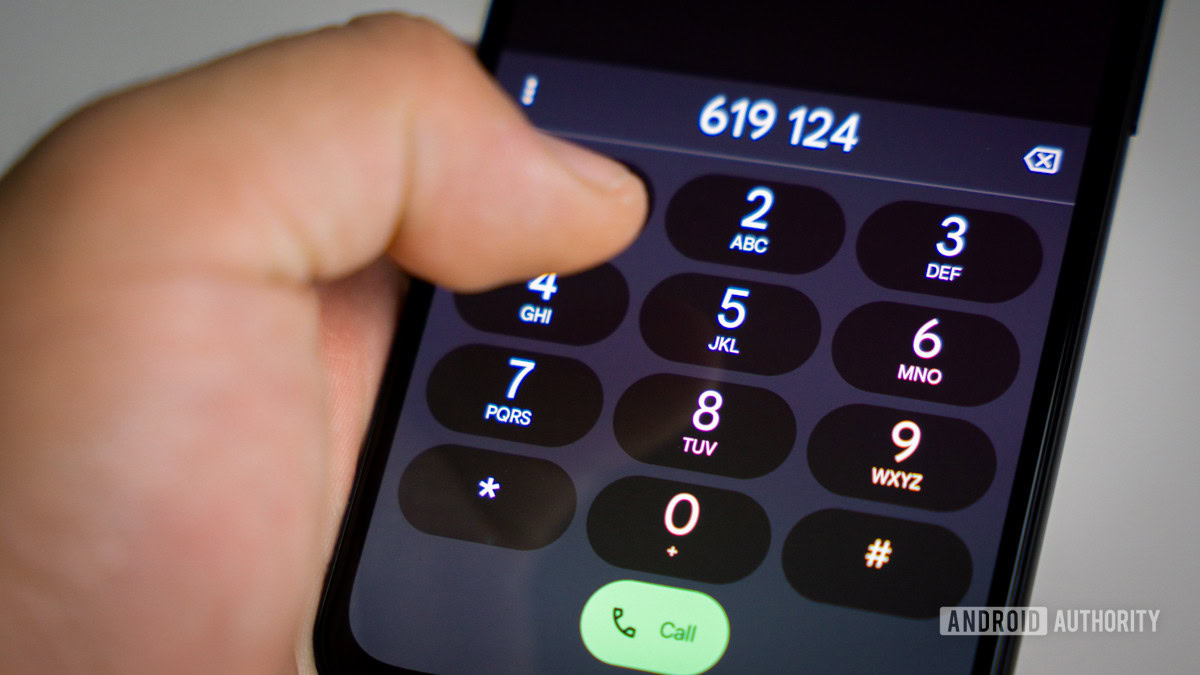
Edgar Cervantes / Android Authority
Earlier this 12 months, Google rolled out a brand new function for Android telephones known as Theft Detection Lock. Ostensibly, when a thief shortly grabs your telephone out of your palms after which makes a run for it, this function makes use of sensors within the telephone to grasp what’s occurred after which set off a lockdown. This received’t get your telephone again, however it’ll no less than assist forestall the thief from accessing any of your delicate knowledge.
Whereas this sounds nice, there was only one drawback: it didn’t work that effectively. In our testing of Theft Detection Lock, we discovered {that a} thief would want to seize your telephone after which run or drive with it in a really particular means for the lockdown to provoke. If the thief doesn’t do that, effectively…no lockdown for you. I extremely suggest studying that article, because it’s a enjoyable one.
Now, Google has rolled out one other function geared towards protecting customers secure from thievery, though this time otherwise. The brand new Rip-off Detection possibility within the Google Telephone app for Pixel telephones listens to your telephone conversations and sends an alert if what it hears sounds scammy.
This new Pixel trick remains to be in beta, however I’ve it and gave it a shot. Sadly, as we noticed with Theft Detection Lock, it seems you shouldn’t depend on this function to guard you simply but.
How does Rip-off Detection work?
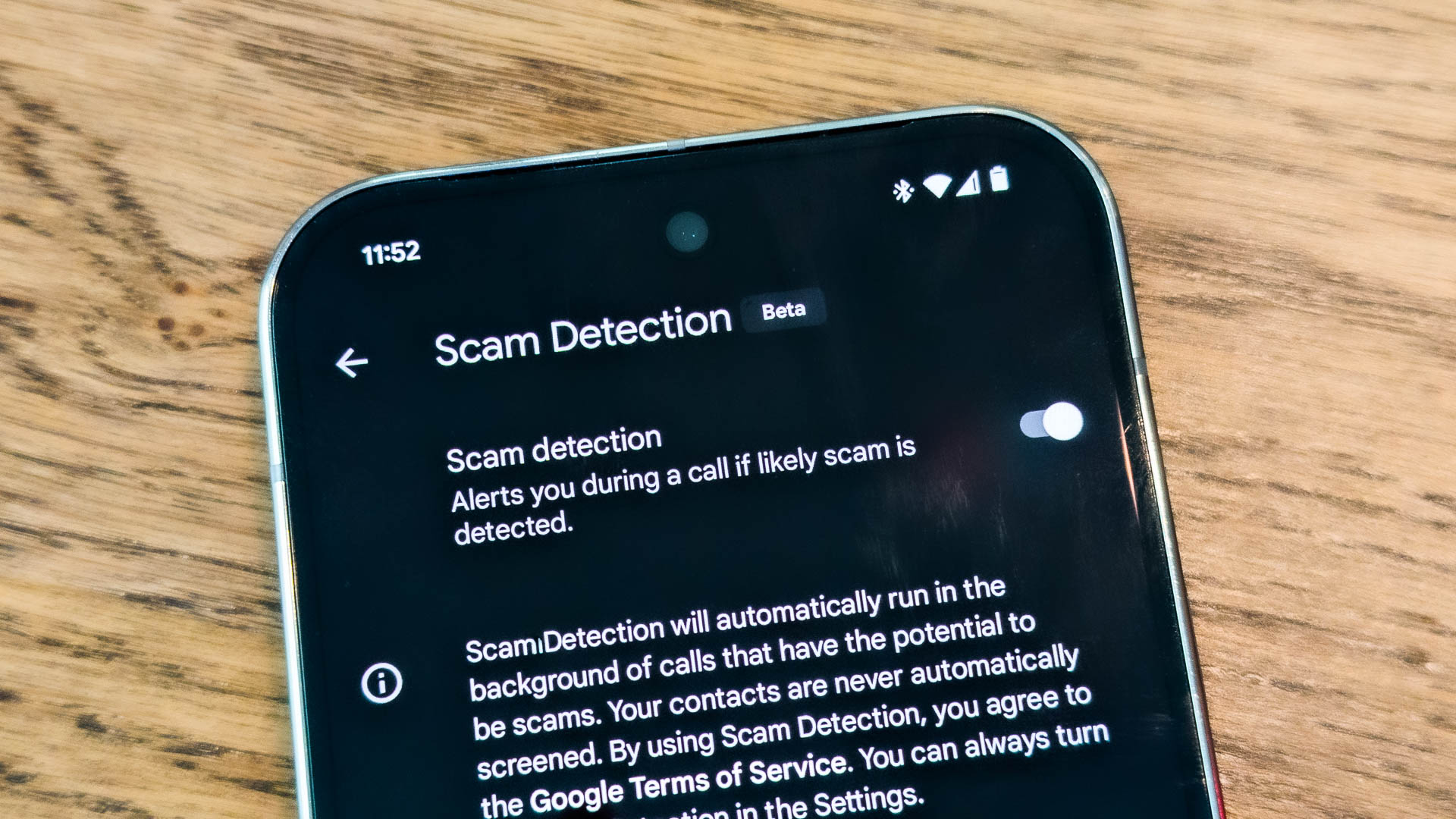
C. Scott Brown / Android Authority
Rip-off Detection is accessible now in america in beta kind on all Pixel telephones from the Pixel 6 onward. Nevertheless, to get it, it’s worthwhile to be utilizing the beta model of the Google Telephone app. When you’re on that beta, a server-side replace ought to set off the addition of Rip-off Detection within the app’s settings. From there, it’s worthwhile to swap it on manually. As you may see within the photograph above, that is very clearly a beta product and must be handled as such.
When you’ve toggled it on, sure telephone calls will set off Rip-off Detection to start listening in on the dialog. To be clear, Rip-off Detection works totally on-device. This implies your dialog isn’t being pushed to the cloud for evaluation. As a substitute, your telephone makes use of Gemini Nano to do all of the work in real-time, protecting your privateness safe whereas additionally protecting you secure — theoretically, anyway.
You’ll want to activate Rip-off Detection manually, and even then, it’ll solely begin working in very particular situations.
Whenever you get a name, Google decides whether or not or to not activate Rip-off Detection. Sadly, there’s no strategy to manually flip the function on throughout a name, which is an odd transfer. I can think about a state of affairs during which a person is perhaps on a name and assume to themselves, “Hmmm, one thing appears fishy right here,” and wish to activate Rip-off Detection. Nevertheless, that’s not attainable in the intervening time.
Moreover, getting it to activate routinely requires a reasonably particular set of circumstances. First, individuals in your contacts is not going to set off Rip-off Detection. Google assumes that if somebody is acquainted sufficient that you’ve got them in your contacts, they aren’t a menace. As soon as once more, I can consider conditions the place you’d nonetheless want Rip-off Detection would activate, akin to if somebody makes use of the quite common caller ID spoofing technique. Regardless, if the individual calling is in your contacts, there isn’t a Rip-off Detection.
Google assumes individuals you understand, individuals calling from uncovered numbers, and even individuals utilizing Google Voice are all reliable.
Moreover, a “regular” telephone quantity doesn’t normally set off rip-off detection, both. I attempted having somebody who isn’t in my contacts name me, however Rip-off Detection didn’t activate. I additionally tried to have somebody use a Google Voice line to name me — a digital quantity that has by no means known as me earlier than that might be from actually anybody — and Rip-off Detection remained off.
The one means I may get the function to set off was to masks a telephone quantity by utilizing the “*67” prefix. Utilizing this technique makes the caller seem as a “Personal Quantity” on caller ID. At any time when I bought a name utilizing the “*67” prefix, Rip-off Detection turned on routinely. You possibly can inform when the function is on as a result of a small protect icon that includes the Gemini AI image seems beneath the caller’s particulars (see photograph beneath).
My expertise with Rip-off Detection: I’d have been scammed
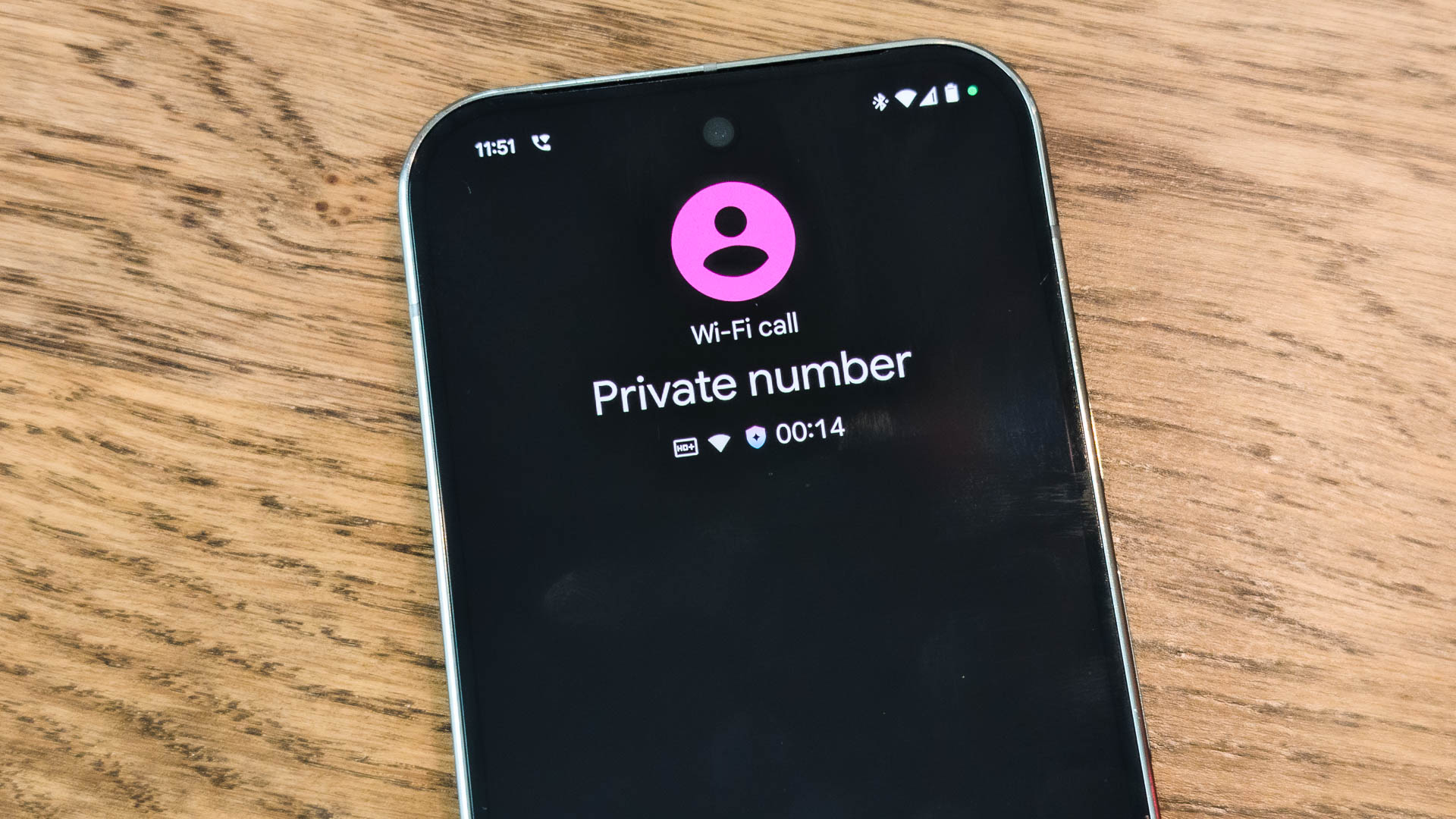
C. Scott Brown / Android Authority
So I lastly bought Rip-off Detection to set off throughout a name, however that’s solely half of what’s wanted to guard me from scammers. As soon as it triggered reliably — the photograph above exhibits the protect image signifying that it’s lively — I wanted to have somebody attempt to rip-off me to see if the Telephone app would defend me. Ostensibly, if Rip-off Detection hears scammy stuff occurring, it ought to set off an alert that appears just like the one beneath, encouraging me to finish the decision.
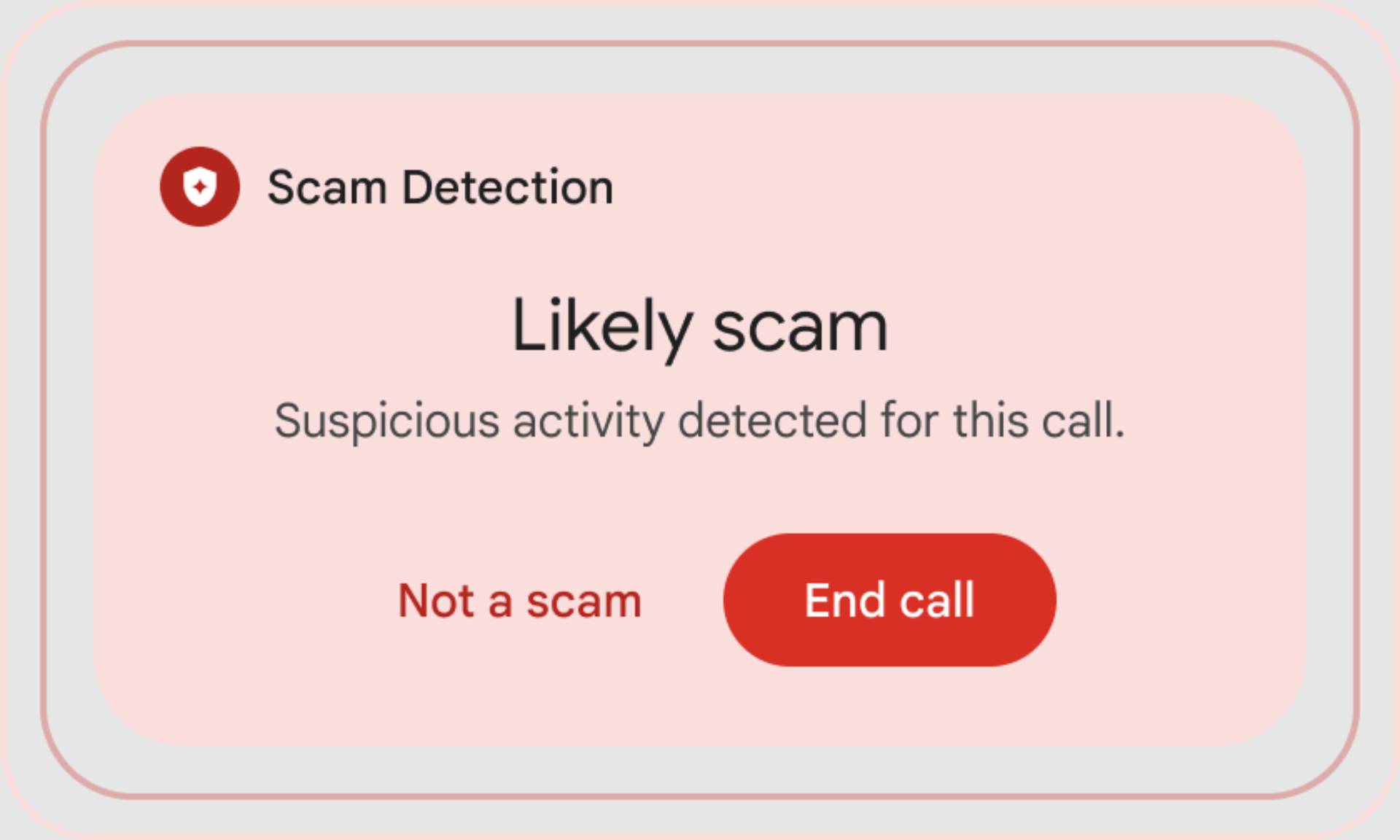
To check this out, my colleague Ryan Haines repeatedly known as me and used tried-and-true scamming ways. He pretended to be calling from Chase Financial institution (a financial institution would by no means name from a “*67” line). He tried to persuade me that I had received a prize of $500 in Google Play reward playing cards, however to get my winnings, I wanted to ship him $200 in reward playing cards. He additionally tried to get me to wire cash to a international financial institution as a result of I’d had an excessive amount of cash going out and never sufficient moving into. In all three of those situations, I used to be not alerted that I used to be most likely being scammed.
Regardless of how exhausting I attempted to get scammed, my telephone by no means alerted me that I used to be in peril.
I even tried to push the restrict by brazenly discussing giving him my Social Safety quantity. Going for broke, I even instructed him my Social Safety quantity slowly and methodically (Ryan’s man, I belief him). Regardless, I by no means noticed that alert, whilst I used to be stupidly giving my SSN to a non-public quantity.
In different phrases, even with Rip-off Detection turned on, I’d have been scammed exhausting in all these situations.
Google remains to be engaged on issues
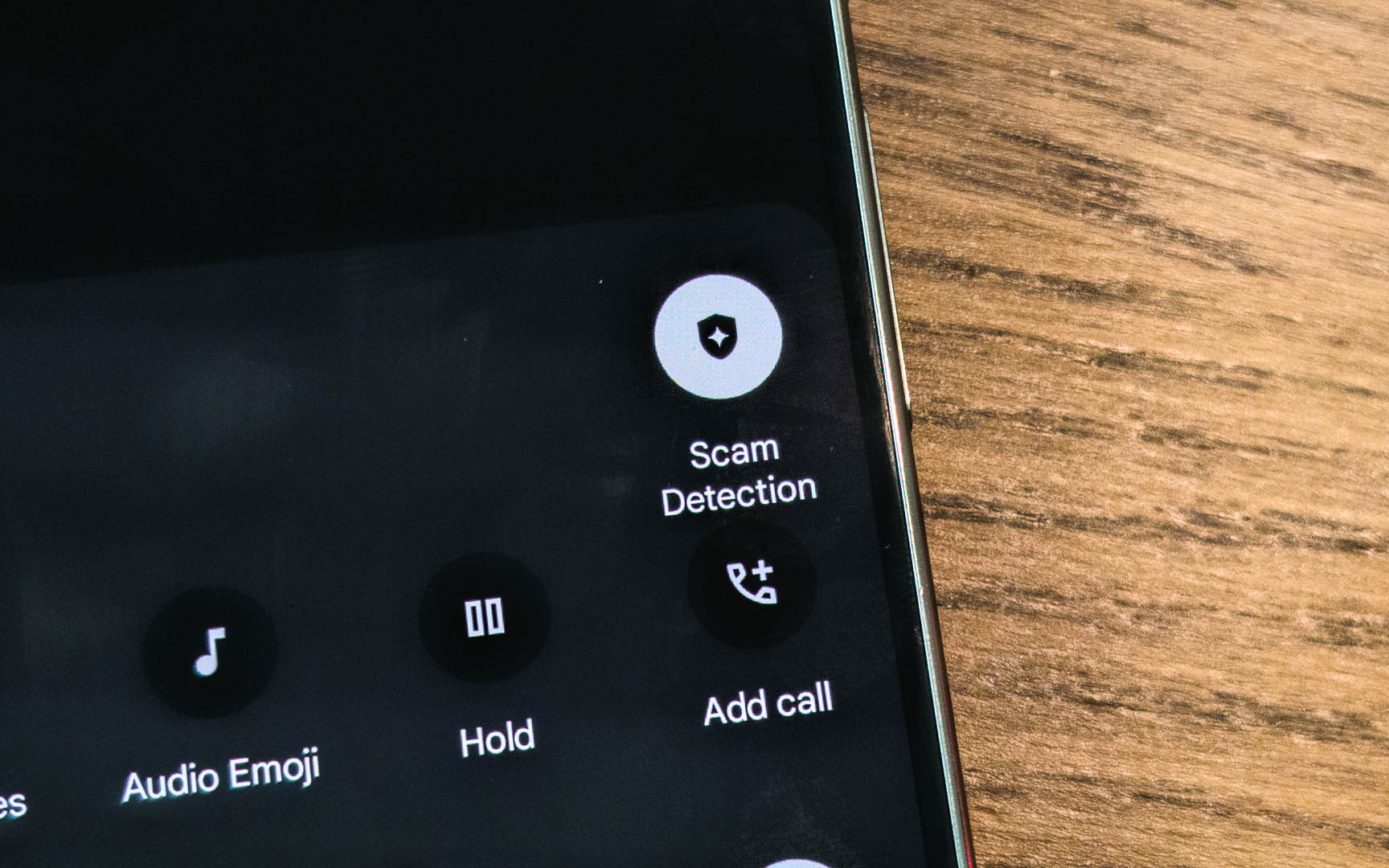
C. Scott Brown / Android Authority
After doing these checks, I contacted Google to get its tackle my expertise. After asking me just a few questions on my methodology, it gave me a bunch of information on how this function works behind the scenes. I promised the corporate I’d not disclose how this works as a result of, fairly clearly, that may simply make it simpler for scammers to bypass the system.
Nevertheless, Google did give me a script, one which they had been certain would set off the rip-off alert. We tried it out and, lo and behold, the alert lastly appeared!
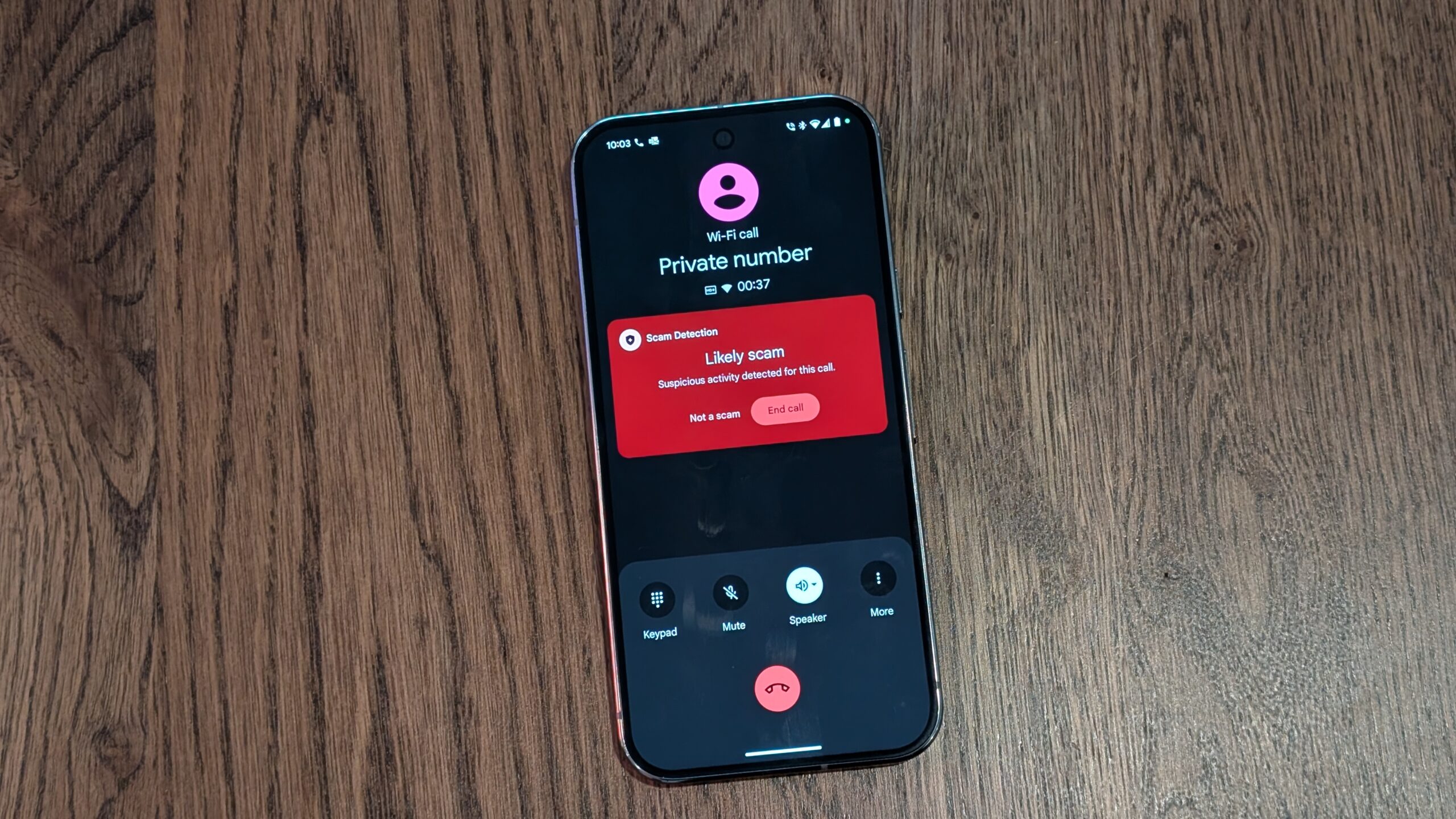
C. Scott Brown / Android Authority
The alert got here with a fast siren sound and intense haptic buzzing, so that you positively wouldn’t miss it. As one would anticipate, hitting the Finish Name button hangs up on the caller.
Sadly, we tried this script two instances, and the opposite time, I didn’t see the alert. Ryan was reduce off barely throughout his studying of the script, so Rip-off Detection didn’t absolutely hear what he was asking me to do. We bought by the entire script, ending with me giving him my bank card info, which is clearly not nice.
By studying a exact script offered by Google, we had been in a position to set off the alert.
OK, so why isn’t Rip-off Detection being extra aggressive about defending customers? Google’s clarification for this mainly comes all the way down to false positives, belief within the system, and the truth that it is a beta product that’s nonetheless in testing. The corporate made it clear to me that it will a lot moderately have the alert go off when it is aware of, with little doubt, that you’re about to get scammed moderately than go off right here and there to the purpose the place you simply start to disregard it. This makes a ton of sense. Google desires customers to deal with the pink provide you with a warning see above as tremendous critical, and each time it pops up when there isn’t a rip-off, it’ll trigger that belief to deteriorate. For this reason our different makes an attempt didn’t set off the alert: Ryan simply wasn’t a sensible sufficient scammer.
Lastly, Google strongly emphasised that it is a software that’s nonetheless in beta, and the rationale it’s doing that is to get suggestions and knowledge on how persons are faring with it. It’s solely going to get higher from right here on out.
Nonetheless, in case you assume turning on Rip-off Detection will defend you from telephone scams, I wouldn’t put that a lot belief into it but. We’ll see the way it does when it lastly turns into a steady function, however for now, you’ll nonetheless must rely by yourself intestine emotions to maintain your head above the water.